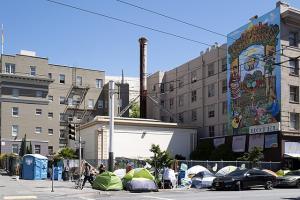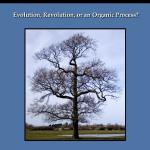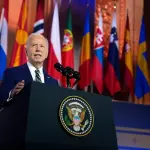
The decision in the case, City of Grants Pass, Oregon v. Johnson Et Al was written by Justice Gorsuch, joined by the other five legally “conservative” Justices. Note that it wasn’t the Supreme Court’s task to solve the problem of homelessness. It simply overturned a lower court ruling that disallowed enforcement of the prohibition of ongoing occupation of public property. Justice Gorsuch explains why such a prohibition actually helps the homeless, rather than harm them.
I won’t bother to add all the italics. I’ve added some paragraph breaks for the sake of better readability. All bolding is my own.
*****
As many cities see it, even as they have expanded shelter capacity and other public services, their unsheltered populations have continued to grow. Id., at 9–11. The city of Seattle, for example, reports that roughly 60 percent of its offers of shelter have been rejected in a recent year. See id., at 28, and n. 26. Officials in Portland, Oregon, indicate that, between April 2022 and January 2024, over 70 percent of their approximately 3,500 offers of shelter beds to homeless individuals were declined. Brief for League of Oregon Cities et al. as Amici Curiae 5 (Oregon Cities Brief ). Other cities tell us that “the vast majority of their homeless populations are not actively seeking shelter and refuse all services.” Brief for Thirteen California Cities as Amici Curiae 3. Surveys cited by the Department of Justice suggest that only “25–41 percent” of “homeless encampment residents” “willingly” accept offers of shelter beds. See Dept. of Justice, Office of Community Oriented Policing Services, S. Chamard, Homeless Encampments 36 (2010). (p. 5)
***
By one count, “a majority of cities have laws restricting camping in public spaces,” and nearly forty percent “have one or more laws prohibiting camping citywide.” See Brief for Western Regional Advocacy Project as Amicus Curiae 7, n. 15 (emphasis deleted). Some have argued that the enforcement of these laws can create a “revolving door that circulates individuals experiencing homelessness from the street to the criminal justice system and back.” U. S. Interagency Council on Homelessness, Searching Out Solutions 6 (2012).
***
***
Consider San Francisco, where each night thousands sleep “in tents and other makeshift structures.” Brief for City and County of San Francisco et al. as Amici Curiae 8 (San Francisco Brief ). Applying Martin, a district court entered an injunction barring the city from enforcing “laws and ordinances to prohibit involuntarily homeless individuals from sitting, lying, or sleeping on public property.” Coalition on Homelessness v. San Francisco, 647 F. Supp. 3d 806, 841 (ND Cal. 2022).
***
*
In short, they say, Martin “make[s] solving this crisis harder.” Cities Cert. Brief 3. All acknowledge “[h]omelessness is a complex and serious social issue that cries out for effective . . . responses.” Ibid. But many States and cities believe “it is crucial” for local governments to “have the latitude” to experiment and find effective responses. Id., at 27; States Brief 13–17. “Injunctions and the threat of federal litigation,” they insist, “impede this democratic process,” undermine local governments, and do not well serve the homeless or others who live in the Ninth Circuit. Cities Cert. Brief 27–28. (p. 10)
***
***
“Please Hit ‘Subscribe’”! If you have received benefit from this or any of my other 4,600+ articles, please follow this blog by signing up (with your email address) on the sidebar to the right (you may have to scroll down a bit), above where there is an icon bar, “Sign Me Up!”: to receive notice when I post a new blog article. This is the equivalent of subscribing to a YouTube channel. Please also consider following me on Twitter / X and purchasing one or more of my 55 books. All of this helps me get more exposure, and (however little!) more income for my full-time apologetics work. Thanks so much and happy reading!
***
In fact, the court ruled, none of the beds at Grants Pass’s charity-run shelter qualified as “available.” They did not, the court said, both because that shelter offers something closer to transitional housing than “temporary emergency shelter,” and because the shelter has rules requiring residents to abstain from smoking and attend religious services. Id., at 179a–180a. The Eighth Amendment, the district court thus concluded, prohibited Grants Pass from enforcing its laws against homeless individuals in the city. Id., at 182a–183a. (p. 13)
***
Is a bed “available” to a smoker if the shelter requires residents to abstain from nicotine, as the shelter in Grants Pass does? 72 F. 4th, at 896; App. 39, Third Amended Complaint ¶13. Is a bed “available” to an atheist if the shelter includes “religious” messaging? 72 F. 4th, at 877. (p. 28)
***
There is uncertainty, as well, over whether Martin requires cities to tolerate other acts no less “attendant [to] survival” than sleeping, such as starting fires to cook food and “public urination [and] defecation.” Phoenix Cert. Brief 29–30; see also Mahoney v. Sacramento, 2020 WL 616302, *3 (ED Cal., Feb. 10, 2020) (indicating that “the [c]ity may not prosecute or otherwise penalize the [homeless] for eliminating in public if there is no alternative to doing so”). (p. 29)
***
Doubtless, the Ninth Circuit’s intervention in Martin was well-intended. But since the trial court entered its injunction against Grants Pass, the city shelter reports that utilization of its resources has fallen by roughly 40 percent. See Brief for Grants Pass Gospel Rescue Mission as Amicus Curiae 4–5. Many other cities offer similar accounts about their experiences after Martin, telling us the decision has made it more difficult, not less, to help the homeless accept shelter off city streets. See Part I–B, supra (recounting examples). Even when “policymakers would prefer to invest in more permanent” programs and policies designed to benefit homeless and other citizens, Martin has forced these “overwhelmed jurisdictions to concentrate public resources on temporary shelter beds.” Cities Brief 25; see Oregon Cities Brief 17–20; States Brief 16–17. As a result, cities report, Martin has undermined their efforts to balance conflicting public needs and mired them in litigation at a time when the homelessness crisis calls for action. See States Brief 16–17. (p. 30)
***
***
Rather than address what we have actually said, the dissent accuses us of extending to local governments an “unfettered freedom to punish,” post, at 25, and stripping away any protections “the Constitution” has against “criminalizing sleeping,” post, at 5. “Either stay awake,” the dissent warns, “or be arrested.” Post, at 2. That is gravely mistaken. We hold nothing of the sort. . . . Nor does the dissent meaningfully engage with the reasons we have offered for our conclusion . . . (p. 31)
***
The dissent suggests we cite selectively to the amici and “see only what [we] wan[t]” in their briefs. Post, at 24. In fact, all the States, cities, and counties listed above (n. 3, supra) asked us to review this case. Among them all, the dissent purports to identify just two public officials and two cities that, according to the dissent, support its view. Post, at 24–25. But even among that select group, the dissent overlooks the fact that each expresses strong dissatisfaction with how Martin has been applied in practice. See San Francisco Brief 15, 26 (“[T]he Ninth Circuit and its lower courts have repeatedly misapplied and overextended the Eighth Amendment” and “hamstrung San Francisco’s balanced approach to addressing the homelessness crisis”); Brief for City of Los Angeles as Amicus Curiae 6 (“[T]he sweeping rationale in Martin . . . calls into question whether cities can enforce public health and safety laws”); California Governor Brief 3 (“In the wake of Martin, lower courts have blocked efforts to clear encampments while micromanaging what qualifies as a suitable offer of shelter”). And for all the reasons we have explored and so many other cities have suggested, we see no principled basis under the Eighth Amendment for federal judges to administer anything like Martin. (footnote on pp. 30-31)
***
To be sure, the dissent seeks to portray the new rule it advocates as a modest, “limited,” and “narrow” one addressing only those who wish to fulfill a “biological necessity” and “keep warm outside with a blanket” when they have no other “adequate” place “to go.” Post, at 1, 5, 10, 21, 24. But that reply blinks the difficult questions that necessarily follow and the Ninth Circuit has been forced to confront: What does it mean to be “involuntarily” homeless with “no place to go”? What kind of “adequate” shelter must a city provide to avoid being forced to allow people to camp in its parks and on its sidewalks? And what are people entitled to do and use in public spaces to “keep warm” and fulfill other “biological necessities”? (pp. 32-33)
*
Practical Matters: Perhaps some of my 4,600+ free online articles (the most comprehensive “one-stop” Catholic apologetics site) or fifty-five books have helped you (by God’s grace) to decide to become Catholic or to return to the Church, or better understand some doctrines and why we believe them.
Or you may believe my work is worthy to support for the purpose of apologetics and evangelism in general. If so, please seriously consider a much-needed financial contribution. I’m always in need of more funds: especially monthly support. “The laborer is worthy of his wages” (1 Tim 5:18, NKJV). 1 December 2021 was my 20th anniversary as a full-time Catholic apologist, and February 2022 marked the 25th anniversary of my blog.
PayPal donations are the easiest: just send to my email address: apologistdave@gmail.com. Here’s also a second page to get to PayPal. You’ll see the term “Catholic Used Book Service”, which is my old side-business. To learn about the different methods of contributing (including Zelle), see my page: About Catholic Apologist Dave Armstrong / Donation Information. Thanks a million from the bottom of my heart!
*
***
*
Photo Credit: Christopher Michel (5-25-20). Homeless encampment in San Francisco [Wikimedia Commons / Creative Commons Attribution 2.0 Generic license]
Summary: Highlights from the Supreme Court case regarding homeless encampments: City of Grants Pass, Oregon v. Johnson Et Al, from the decision written by Justice Gorsuch.













